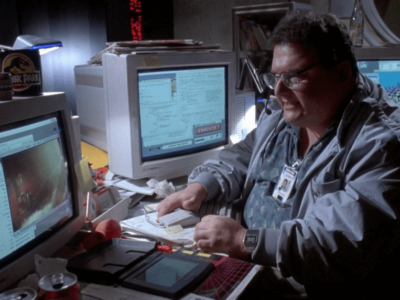Computers are everywhere. There’s no denying it. Whether they’re in our pockets or in space, computers are a huge part of modern life, culture and science. That being said, computer science majors are like hot guys at a small town school: few, far in between and everyone wants to invite them to chill in their pool. Whether it’s a New York-based design firm or a Boise-based law firm, companies need someone who can run their technology the right way. That’s where you come in.
What You’ll Be Doing

You’ll take courses on topics such as artificial intelligence and do a variety of practical projects that help you understand how some of today’s forefront technologies work (just don’t go accidentally inventing SkyNet, okay?). You’ll be able to comprehend the complexities of modern computing to a level only describable as technological enlightenment. Perhaps the only thing you won’t learn will be how to relay to us laymen the awesomeness of the algorithms behind things such as image-based searching.
Upsides

1. “One major upside of a degree in computer science was gaining an understanding of how the software that runs everything from microwaves to smartphones is written and runs on those devices.” – Gustave Granroth, University of Wisconsin-Madison ‘15, Member of Microsoft’s Windows and Device Group
2. “Although CS degrees are not 100% necessary to getting a job, they are a good way for someone without professional experience to get a foot in the door.” – Michael Alvarez, University of Wisconsin-Madison senior, Senior Java Web Developer with the Wisconsin Department of Justice
3. “The assignments in CS are typically pretty cool. We may be learning about Data Structures, but the assignment that week is a Maze Solver or Sudoku solver. I didn’t get excited for assignments in other departments like I did in CS.” – Domenic Bove, Boston College ‘15, Associate Middleware Consultant at Red Hat
Downsides

1. “While most computer science projects can be finished with trigonometry-level mathematics, you’ll need to learn effective communication skills to describe the code you write to your professors and fellow project teammates.” – Gustave Granroth, University of Wisconsin-Madison ‘15, Member of Microsoft’s Windows and Device Group
2. “There are a ton of invaluable resources and books that can be bought or used for free that are very competitive with an actual degree, but for a much cheaper price tag. The fact that MIT puts their CS curriculum online is a major stepping stone to allow people to learn it on their own.” – Michael Alvarez, University of Wisconsin-Madison senior, Senior Java Web Developer with the Wisconsin Department of Justice
3. “The biggest pitfall of computer science is the trickiness of the assignments. You can get stumped on one section and stop all forward progress. Sometimes the only way to finish an assignment in CS is to get help and what do you do if the assignment is due in the morning?” – Domenic Bove, Boston College ‘15, Associate Middleware Consultant at Red Hat
Career Opportunities

Given the pervasiveness of computers nowadays, your career possibilities are expansive. Whether you want to explore the googols of opportunities with Google, work for the Big Apple in Cupertino or make your own job becoming the next Jobs, you have a web of opportunities to surf.
1. Software Developer
You’ll work to design and create software for a variety of tasks. You can find software for whatever interests you, from taxes to video editing. Whatever you do, just try to avoid creating atrocities like Vista. Or worse: Millennium Edition.
2. Web Developer
Websites are a virtual necessity (pun intended) in today’s modern world. You could be the guy to create the snazzy new site for the company of your dreams.
3. Information Security Analyst
You’ll be creating security measures to help protect people’s private information and to test existing security. Basically you’ll be a good-guy hacker, and if that’s not cool, I don’t know what is.
4. Programmer
If a software developer was the first-level dream in Inception, programmers are Limbo. You are the deepest layer of writing code there is. You’ll write code and debug stuff that software developers will use later.
5. Technical Support/Information Technology
You’ll get paid to help people fix their computer problems. Then you’ll come home, get a call from your mother and have to do it for free. Really though, you’ll be well-paid to do everything from fix someone’s aspect ratio to recover files from their old hard drive.



















